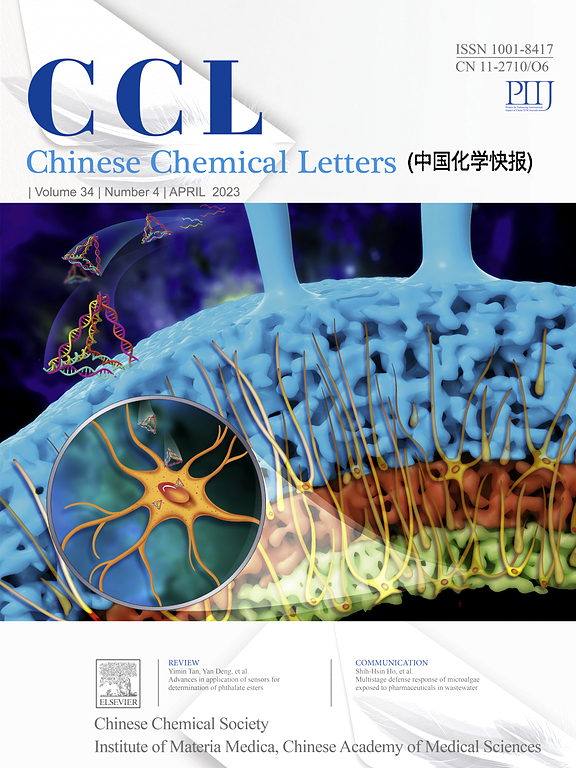操纵非磁性液体的磁响应受限界面的物理化学设计
IF 9.4
1区 化学
Q1 CHEMISTRY, MULTIDISCIPLINARY
引用次数: 0
摘要
在化学工业、生物医药和农业生产等各个领域中,可控的液体操作具有至关重要的科学和技术意义。磁致动具有快速、无接触和环保的特点,已成为一种有前途的精确液体控制方法。然而,传统的磁性策略通常控制液滴在开放表面上的运动,面临诸如受限的液体体积,不确定的流动路径和不可避免的蒸发等限制,从而限制了其更广泛的实际应用。最近,人们开发了各种磁驱动策略来动态调节封闭空间内的液体,特别是通过物理化学机制。这些方法通过利用磁诱导的化学变化、结构变形和拖拽运动,提供了对液体行为的有效控制,为灵活、通用的流体管理开辟了新的机会。本文探讨了用于非磁性液体操纵的磁响应受限界面的设计和机制,重点介绍了液体阀门、液体混合、液体流量调节和液体泵送等方面的关键进展和潜在应用。最后,提出了该领域存在的挑战和未来的展望。本文章由计算机程序翻译,如有差异,请以英文原文为准。
Physicochemical design of magneto-responsive confined interfaces for manipulation of nonmagnetic liquids
Controllable liquid manipulation is of paramount scientific and technological importance in various fields, such as the chemical industry, biomedicine, and agricultural production. Magnetic actuation, characterized by rapid, contactless, and environmentally benign operation, has emerged as a promising approach for precise liquid control. However, conventional magnetic strategies typically govern droplet movement on open surfaces, facing limitations such as restricted liquid volumes, uncertain flow paths, and inevitable evaporation, thereby constraining their broader practical applications. Recently, a variety of magnetic-driven strategies have been developed to dynamically regulate liquids within enclosed spaces, especially through physicochemical mechanisms. These approaches provide efficient control over liquid behavior by leveraging magnetically induced chemical changes, structural deformations, and dragging motions, opening new opportunities for flexible and versatile fluid management. This review explores the design and mechanisms of magneto-responsive confined interfaces for the manipulation of nonmagnetic liquids, highlighting key advancements and potential applications including liquid valves, liquid mixing, liquid flow regulation, and liquid pumping. Finally, the existing challenges and future prospects in this field are presented.
求助全文
通过发布文献求助,成功后即可免费获取论文全文。
去求助
来源期刊

Chinese Chemical Letters
化学-化学综合
CiteScore
14.10
自引率
15.40%
发文量
8969
审稿时长
1.6 months
期刊介绍:
Chinese Chemical Letters (CCL) (ISSN 1001-8417) was founded in July 1990. The journal publishes preliminary accounts in the whole field of chemistry, including inorganic chemistry, organic chemistry, analytical chemistry, physical chemistry, polymer chemistry, applied chemistry, etc.Chinese Chemical Letters does not accept articles previously published or scheduled to be published. To verify originality, your article may be checked by the originality detection service CrossCheck.
 求助内容:
求助内容: 应助结果提醒方式:
应助结果提醒方式:


